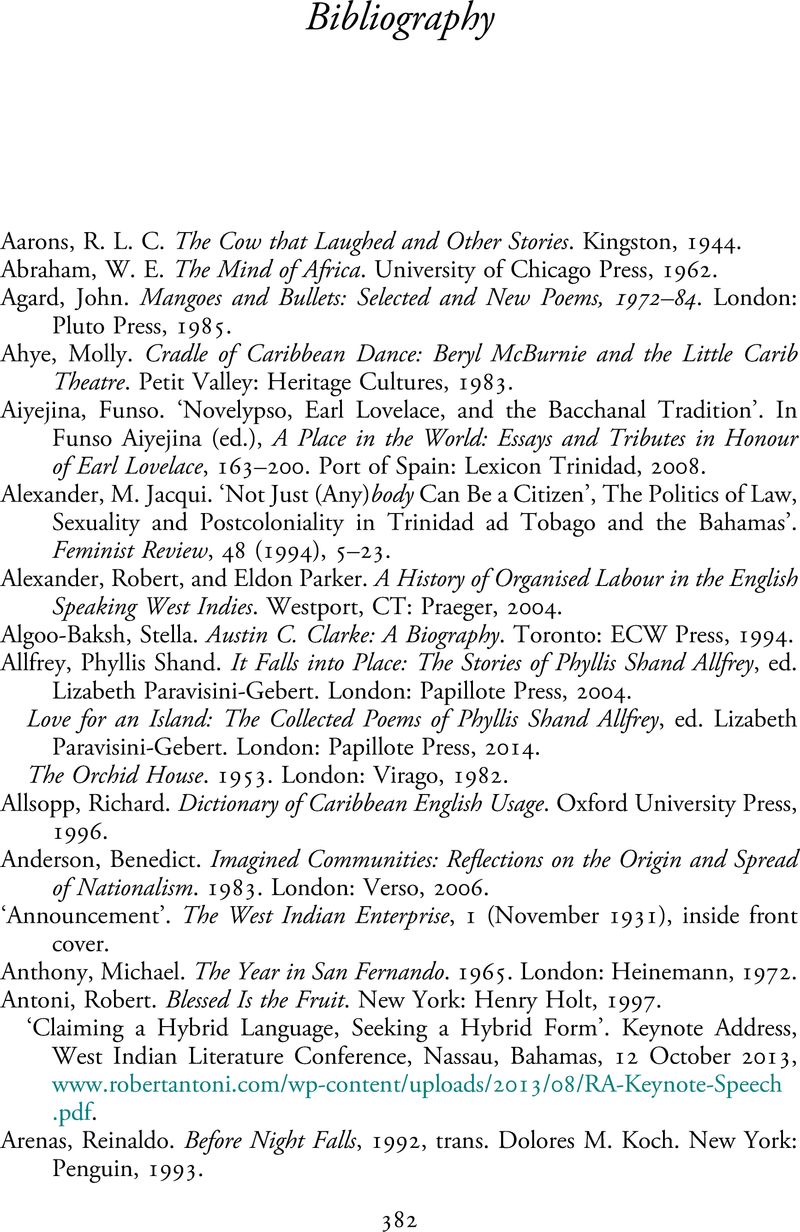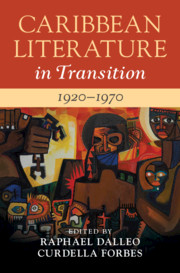Book contents
- Caribbean Literature in Transition, 1920–1970
- Caribbean Literature in Transition
- Caribbean Literature in Transition, 1920–1970
- Copyright page
- Contents
- Figure
- Contributors
- Introduction
- Part I Literary and Generic Transitions
- Part II Cultural and Political Transitions
- Part III The Caribbean Region in Transition
- Part IV Critical Transitions
- Bibliography
- Index
- References
Bibliography
Published online by Cambridge University Press: 16 December 2020
- Caribbean Literature in Transition, 1920–1970
- Caribbean Literature in Transition
- Caribbean Literature in Transition, 1920–1970
- Copyright page
- Contents
- Figure
- Contributors
- Introduction
- Part I Literary and Generic Transitions
- Part II Cultural and Political Transitions
- Part III The Caribbean Region in Transition
- Part IV Critical Transitions
- Bibliography
- Index
- References
Summary

- Type
- Chapter
- Information
- Caribbean Literature in Transition, 1920–1970 , pp. 382 - 413Publisher: Cambridge University PressPrint publication year: 2021

